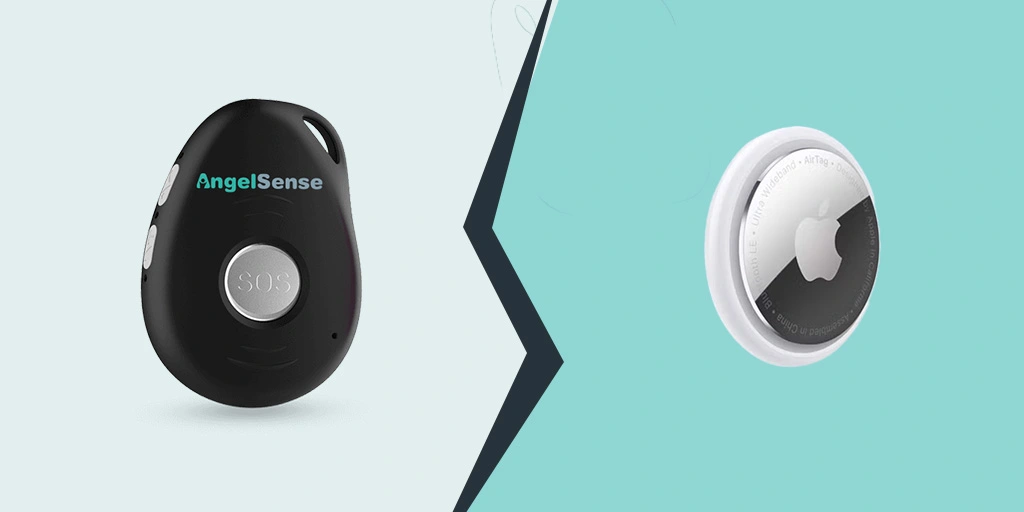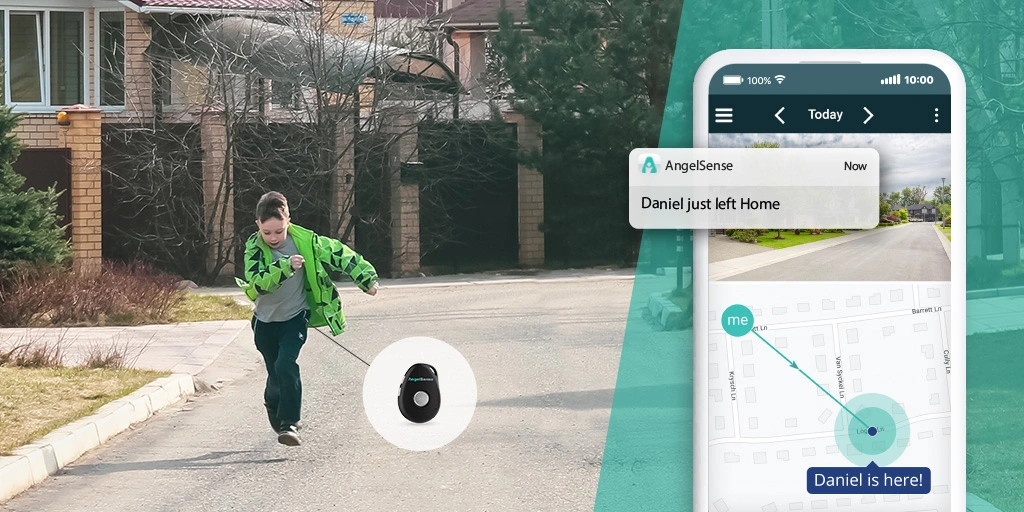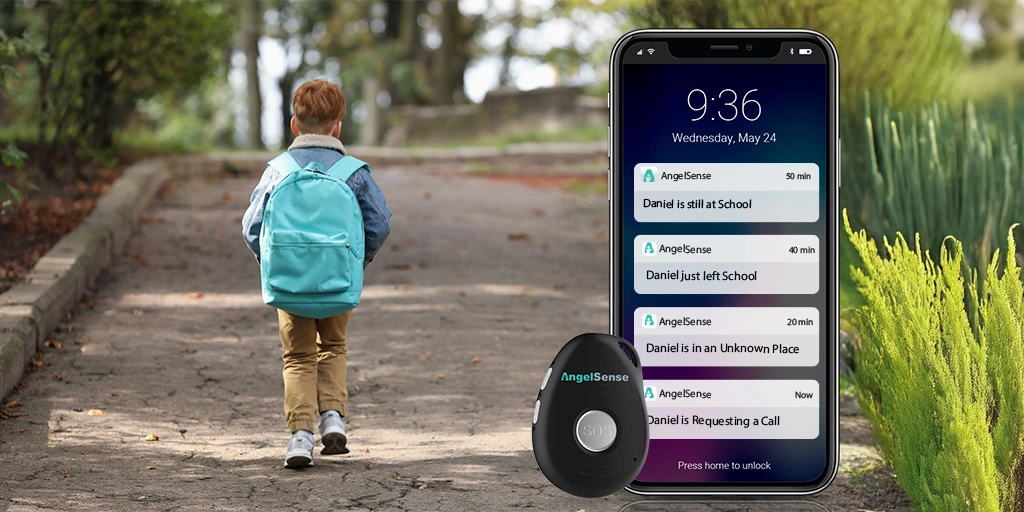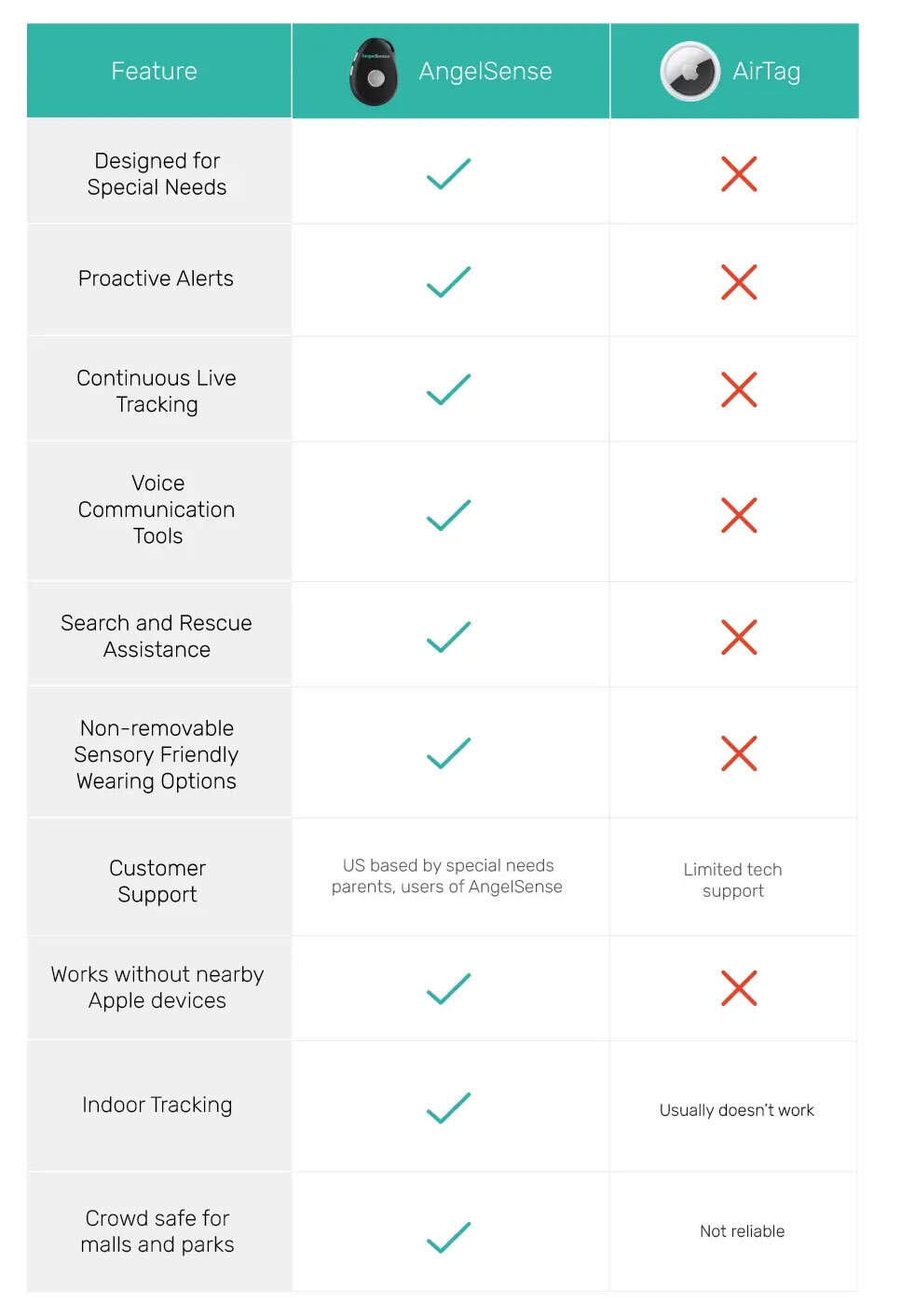AngelSense vs. AirTag: The Critical Differences You Need to Know
Updated on July 29, 2025 Listen to the PodcastWith Apple AirTag and AngelSense being popular location monitoring solutions on the market today, more families and carers are comparing the two options and trying to understand their differences. However, what most people don’t know is that AngelSense and AirTag were created for completely different purposes.
AirTags were created as a low cost solution to find stuff, not people. AngelSense, on the other hand, was created to provide maximum safety for individuals with special needs.
And that makes a huge difference when it comes to their capabilities, reliability, features, and the way they work.
AirTags are small, coin-shaped Bluetooth beacons created by Apple. They’re very popular and great for finding missing keys, luggage, handbags as long as those items are in the proximity of iPhone devices.
AngelSense is an assistive technology designed specifically to keep individuals with special needs safe. It is used by special needs families across the nation, search & rescue and law enforcement teams, and has proven to prevent elopements and other safety-related incidents on countless occasions.

How AirTag Works
AirTags use Bluetooth to ping their location to nearby Apple devices. It uses these nearby devices’ cellular network to relay its location information back to your “Find My” app. AirTag doesn’t have a GPS component nor cellular connectivity and therefore its update intervals are totally dependent on other Apple network devices being nearby and cooperative (having their Location Services enabled and being part of the Find My network). Update intervals can vary from minutes to days.
Relying on this type of functionality to protect a person and especially one with special needs can put them in serious danger – here’s why.
Cons of Apple AirTag for Special Needs Safety
1. No Geofencing
How it affects safety: AirTag has no built-in geofencing capabilities which means that it doesn’t send an alert if a child leaves a safe geofence, enters another location, doesn’t enter school, etc. There is no advance notice on potentially at-risk situations. With AirTag, you need to decide when to open the Find My app and check for the current location. When it comes to finding a lost bag or keys, that’s fine. With a missing person, waiting to know that they are lost may be way too late.
2. No Voice Capabilities
How it affects safety: AirTag doesn’t have the ability to help you understand the situation your loved one is in. When your loved one has special needs, the option to speak to your loved one directly, hear what’s happening in their surroundings, or speak to people in their proximity is crucial. When it comes to special needs safety and detecting that your loved one is in a potentially dangerous or unknown location, the most immediate way to provide help is through voice communication. With AirTag, that option does not exist at all.
3. Location Transmission Intervals & Reliability
How it affects safety: The AirTag’s location is updated only when an Apple device comes near the AirTag. There is no fixed interval like every few seconds or minutes. This means the update rate is inconsistent and can vary from seconds to hours to days – depending entirely on the presence and density of nearby Apple devices.
When an AirTag is in movement, for example if it’s in a car on a highway without an Apple device nearby, it won’t update at all. This means that with an AirTag, you can’t reliably track a person in movement.

How Is AngelSense Different
AngelSense is Assistive Technology that was built specifically for individuals with autism, cognitive disabilities, and other special needs.
It wasn’t designed to find lost items – it was carefully designed to ensure that our loved ones with special needs are safe at all times, and provide parents and caregivers with essential safety tools when a potentially dangerous situation is detected by the system.
Cellular and GPS-Based Tracking
AngelSense uses its own cellular SIM card and a built-in GPS module to continuously update your app with real-time locations, consistently and reliably —even if your app is closed. It doesn’t rely on third-party devices to function.
Proactive Safety Features
AngelSense isn’t just passive location tracking. You get:
- Immediate alerts for location changes and delays
- Transit, school bus, and routine monitoring
- Notifications if your child leaves a safe zone (like school or home)
- App shows exact location on a map
- Timeline view of the day’s activities
- Two-way voice communication – You can speak to your child, or listen in silently if needed.
- SOS button – Your child can alert you instantly if they need help.
- Secure, sensory-friendly clothing attachments for securing the device
- Location history and timeline – You can look back and see where your child went throughout the day.
Bottom line, every feature of AngelSense was designed with special needs safety in mind.

AngelSense’s Voice Tools: A Safety Net Like No Other
While popular tracking solutions such as AirTag, Tile, Samsung Tag and many others are often compared to AngelSense, none of them provide AngelSense’s two-way voice communication tools, which are critical for at-risk individuals and special needs families.
Hear What’s Happening
The assistive speakerphone on the AngelSense device lets you discreetly monitor your loved one’s surroundings—so you know if your child is safe, in distress, or just needs a reminder. This unique ability can prevent potential dangers, and using the two-way voice capability you can also provide immediate instructions in emergencies, such as asking bystanders to assist or calming the individual during a meltdown. The call is initiated by the parent via the app.
Empower with the SOS Button
The one-touch SOS button on the AngelSense device allows your loved one to call for help at any time, promoting confidence and reinforcing that they are never alone.
Promote Independence
AngelSense allows caregivers to remotely provide voice support and guidance in real-time, enabling loved ones to engage in independent activities with confidence. Whether navigating public transit, exploring the community, or handling unexpected situations, caregivers can use AngelSense to be present virtually, offering reassurance and help whenever needed.

Which Solution Is Right for You?
Choosing between AirTag and AngelSense ultimately comes down to your needs.
For locating lost items like keys, bags, or wallets, AirTag is good enough.
For safeguarding individuals and promoting independence, especially for children or loved ones with special needs, AngelSense provides a comprehensive, purpose-built solution that prioritizes safety and well-being.
When it comes to the safety and well-being of a loved one, having the right tools isn’t just a convenience—it’s a necessity. AngelSense was purposefully designed to address the unique challenges faced by special needs families, offering features that go beyond location tracking to provide real-time support and proactive safety measures.
When someone you love may be at risk of wandering, confusion, or danger, you need more than location updates. You need direct communication, continuous location monitoring, real-time alerts, and a tool built for high-stress, real-world scenarios.
AngelSense is more than just a GPS tracker—it’s a complete safety system for peace of mind. From detecting potentially dangerous situations before they happen, hearing your loved one’s surroundings to guiding them home or intervening in emergencies, AngelSense helps caregivers stay connected, informed, and empowered.
Learn more about AngelSense and see how it can transform safety and independence for your family.
AngelSense vs. AirTag: Comparison at a Glance

Get peace of mind from AngelSense, the groundbreaking AI-based assistive technology designed to enhance safety and peace of mind for individuals with special needs and their families. Our solution ensures you stay connected with your loved ones, empowering a higher level of independence while maintaining safety. Learn more about how AngelSense can make a difference for your family.

